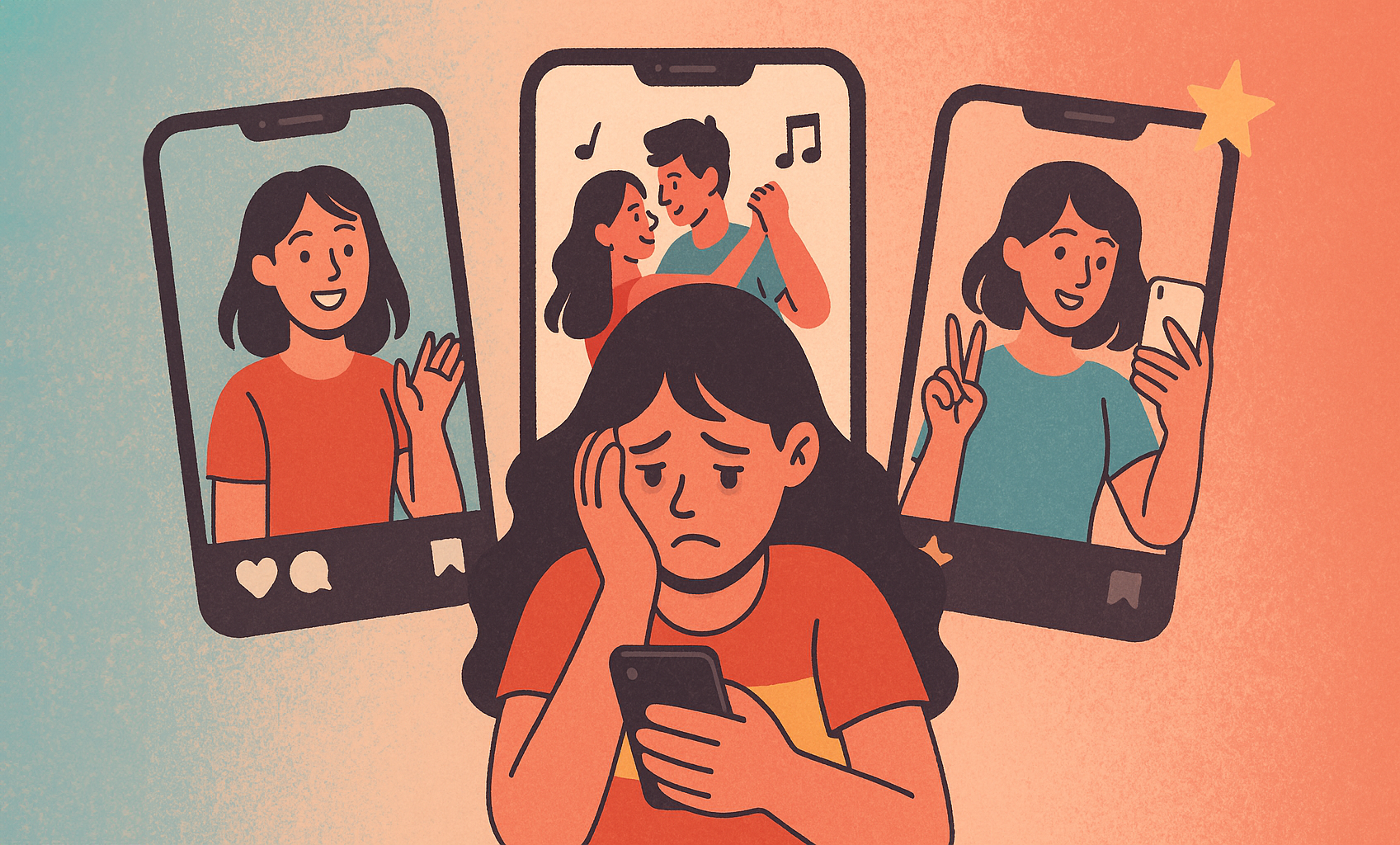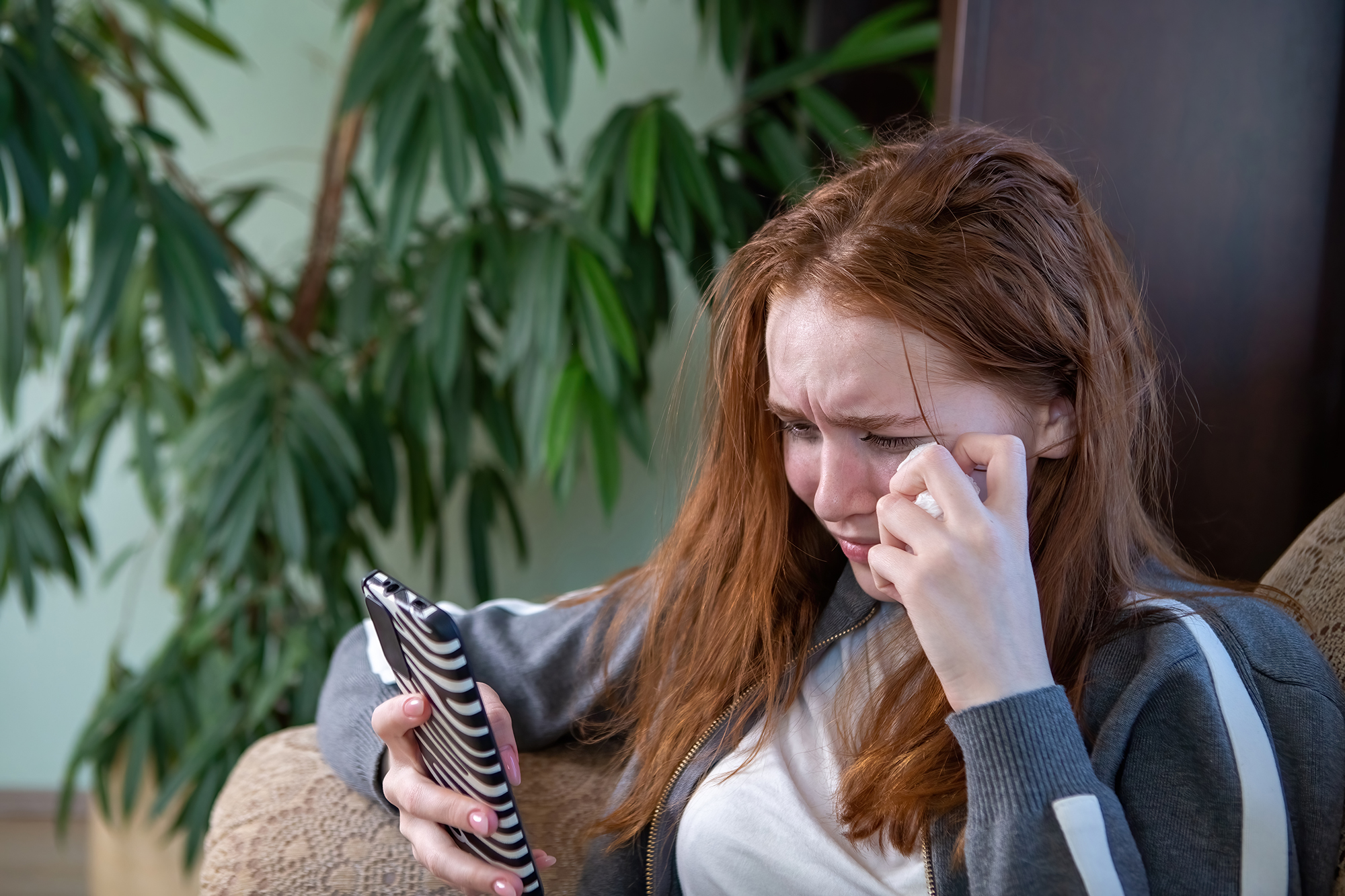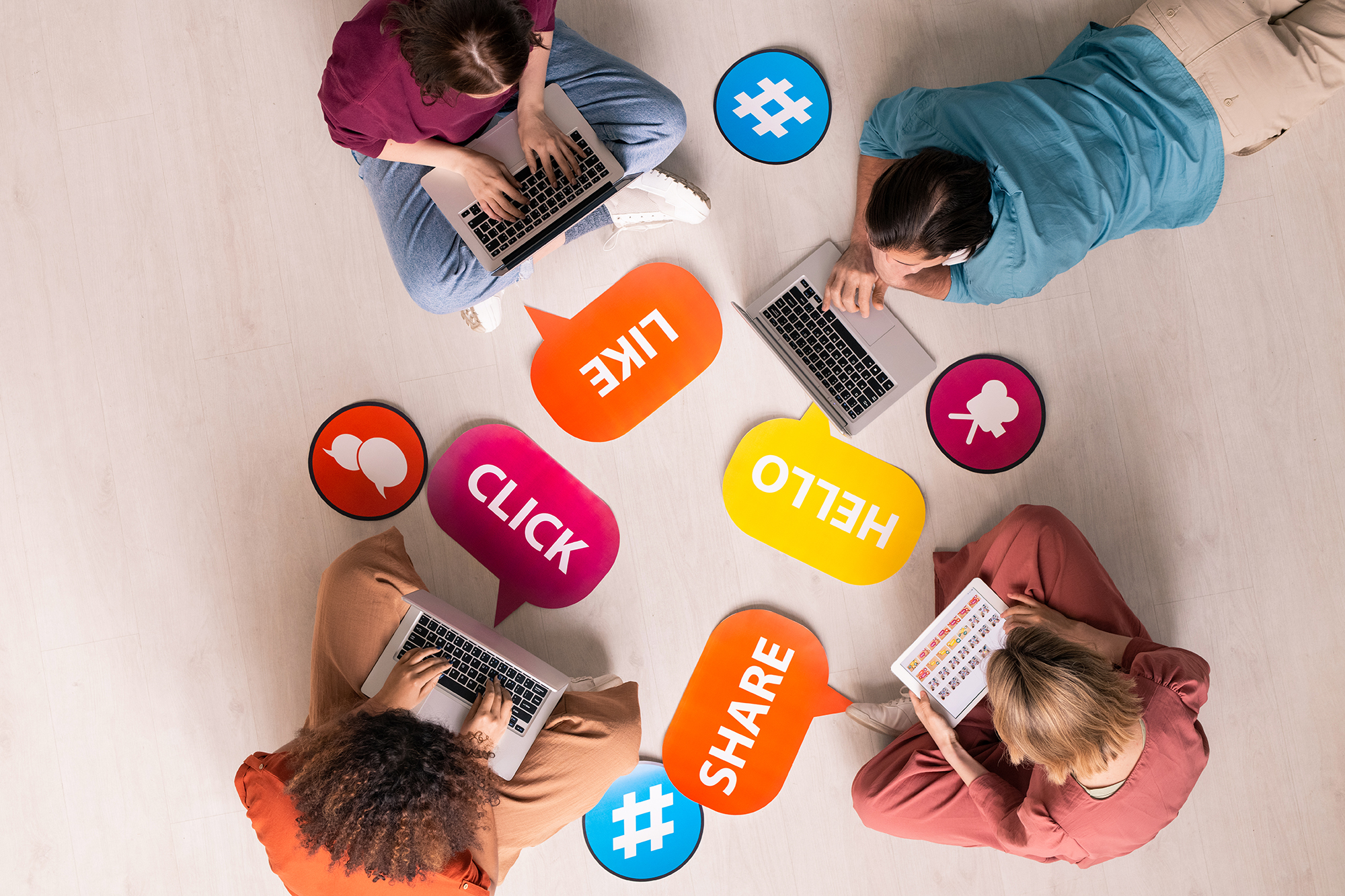
Rylee Lueken
January 15, 2026
•
15 min read

Why scrolling through filtered feeds is rewiring young brains for inadequacy—and the science-backed strategies that actually work
We've all witnessed it: A confident teenager suddenly questioning their appearance after scrolling Instagram, or a young adult feeling like a failure because everyone else seems to have their life together on LinkedIn. What feels like harmless browsing is actually triggering one of the most destructive psychological phenomena of our digital age—the comparison trap.
Recent research reveals that nearly 60% of U.S. teen girls reported persistent feelings of sadness in 2021—the highest rate in over a decade. The culprit isn't just social media itself, but how these platforms exploit our fundamental human need to measure ourselves against others, turning healthy social comparison into a mental health crisis.
Social comparison theory isn't new—psychologist Leon Festinger identified this human tendency in 1954. But social media has weaponized this natural behavior in unprecedented ways. Unlike face-to-face interactions where we see both struggles and successes, digital platforms create what researchers call "highlight reel syndrome"—endless streams of curated perfection that make normal life feel inadequate.
Here's what makes online comparison particularly toxic:
Algorithmic amplification: Platforms deliberately show content that triggers emotional responses, including envy and inadequacy, because these emotions increase engagement time.
Context collapse: We lose crucial background information about others' lives, making surface-level comparisons seem valid when they're actually meaningless.
Frequency and intensity: We can now compare ourselves to hundreds of people daily, overwhelming our brain's ability to process social information healthily.
When we engage in social comparison online, our brains release dopamine—the same chemical involved in addiction. But unlike positive reinforcement, social media comparison creates what neuroscientists call a "dopamine deficit state," where we need increasingly more comparison to feel normal, while our baseline mood continues dropping.
For developing brains, this process is particularly damaging. Adolescent neural pathways are still forming, meaning repeated comparison behaviors literally reshape how young people's brains process self-worth and social information.
Multiple large-scale studies have established clear links between heavy social media use and psychological distress:
The impact on body image deserves special attention. Social media platforms are flooded with digitally altered images that create impossible beauty standards. Research shows that even brief exposure to these idealized images can trigger body dissatisfaction that lasts for hours.
What makes this particularly insidious is that young people often can't distinguish between authentic and heavily edited content. Their brains process these impossible standards as achievable goals, leading to chronic feelings of physical inadequacy.

Beyond appearance, social media creates relentless pressure around life achievements. LinkedIn's professional highlight reels, Instagram's lifestyle perfection, and TikTok's talent showcases create an illusion that everyone else is more successful, more talented, and more fulfilled.
This "compare and despair" cycle is particularly brutal for young adults navigating major life transitions. When everyone appears to have their dream job, perfect relationship, or flawless living situation, normal life struggles feel like personal failures.
Recognizing comparison trap symptoms early is crucial for intervention. Watch for these red flags:
Research shows that even modest reductions in social media use create significant mental health improvements. Try this graduated approach:
Week 1: Reduce daily usage by 25% (track with built-in screen time tools) Week 2: Implement "phone-free" hours during meals and before bed Week 3: Try a full 48-hour digital detox on weekends Week 4: Evaluate which platforms serve you vs. drain you
Studies indicate that participants who followed this protocol showed measurable improvements in self-esteem, body image, and overall life satisfaction within just one month.
Social media algorithms prioritize engagement over well-being, but you can hack them for better mental health:
Unfollow comparison triggers: Remove accounts that consistently make you feel inadequate, regardless of how "inspiring" they claim to be.
Seek authentic content: Follow accounts that show behind-the-scenes reality, failure stories, and genuine human experiences.
Diversify your feed: Follow accounts related to hobbies, learning, or causes you care about rather than appearance or lifestyle-focused content.
Use platform tools: Most platforms now offer features to limit certain content types—use them strategically.
The goal isn't to eliminate social comparison entirely—it's natural and sometimes helpful. Instead, build psychological resilience:
Practice gratitude interventions: Spend 5 minutes daily writing down three specific things you're grateful for about your own life.
Reframe comparison thoughts: When you catch yourself comparing, ask "What context am I missing about this person's situation?"
Focus on personal progress: Track your own growth over time rather than measuring against others' current highlight reels.
Engage in offline achievement: Pursue goals and hobbies that exist independent of social media validation.
Digital relationships can supplement but never replace in-person human connection. Research consistently shows that face-to-face social interaction is crucial for healthy self-esteem development:
Schedule device-free social time: Plan activities with friends where phones are put away entirely.
Join offline communities: Participate in clubs, sports, volunteer work, or classes that align with your interests.
Practice vulnerable conversation: Share real struggles and challenges with trusted friends, moving beyond surface-level interactions.
Family connection time: Establish regular family activities without digital distractions.

Model healthy usage: Children learn more from watching than from lectures. Examine your own social media habits first.
Establish family media agreements: Create clear, collaborative rules about when and how devices are used in your home.
Create charging stations: Keep devices out of bedrooms overnight to improve sleep and reduce comparison temptation.
Regular check-ins: Have ongoing, non-judgmental conversations about online experiences and feelings.
Help young people develop the skills to critically evaluate what they see online:
Discuss photo editing: Explain how filters, editing apps, and professional photography create unrealistic images.
Analyze algorithms: Help them understand how platforms are designed to capture attention and trigger emotions.
Practice source evaluation: Teach them to question what context might be missing from posts they see.
Encourage authentic sharing: Model and reward genuine, unfiltered sharing in your own posts and reactions.
Not necessarily. The impact depends heavily on how platforms are used and what content is consumed. Social media can support self-esteem when used for genuine connection, learning, and creative expression rather than comparison and validation-seeking.
Research shows that adolescents between ages 10-14 are particularly susceptible, as this is when identity formation is most active and peer approval becomes especially important. However, comparison effects can impact people at any age.

Studies show that meaningful improvements in body image and self-esteem can begin within just one week of reducing usage. More significant changes typically occur within 2-4 weeks of consistent behavior changes.
Start with collaborative conversation rather than restrictions. Help them track how different online activities make them feel, and work together to identify changes they want to make. Focus on adding positive activities rather than just removing negative ones.
Yes. Cognitive-behavioral therapy (CBT) and acceptance and commitment therapy (ACT) have shown particular effectiveness in helping people develop healthier relationships with social media and rebuild self-worth.
Breaking free from the comparison trap requires more than willpower—it takes tools, tracking, and ongoing support. Brightn's mental health app is specifically designed to help you build awareness around social media's impact on your mood and develop healthier digital habits.
Mood and trigger tracking: Log your emotions before and after social media use to identify patterns and problem platforms.
Guided reflections: Work through comparison thoughts with structured prompts designed by mental health professionals.
Mindfulness practices: Access meditation and grounding exercises specifically designed for digital overwhelm and comparison anxiety.
Thought reframing tools: Learn cognitive techniques to challenge comparison thoughts and build self-compassion.
Progress monitoring: Track improvements in self-esteem and body image as you implement healthier digital habits.
Whether you're a parent concerned about your teenager's relationship with social media or an adult recognizing comparison patterns in your own life, Brightn provides the evidence-based tools needed to reclaim your self-worth from the digital comparison trap.

The comparison trap is real, pervasive, and damaging—but it's not inevitable. Social media platforms profit from keeping users in cycles of inadequacy and comparison, but armed with awareness and the right strategies, you can break free.
Start today with one small change: Choose just one strategy from this article and implement it this week. Whether it's unfollowing five accounts that trigger comparison, setting phone-free meal times, or spending 5 minutes on gratitude practice, small actions create meaningful momentum.
Remember that healing isn't linear: You'll likely have days when comparison thoughts feel overwhelming. This is normal and doesn't mean you're failing. Self-compassion during setbacks is just as important as celebrating progress.
Seek support when needed: If social media comparison is significantly impacting your daily life, relationships, or mental health, don't hesitate to reach out to mental health professionals. You deserve support, and asking for help is a sign of strength, not weakness.
The goal isn't to eliminate social media entirely—it's to use these powerful tools in ways that enhance rather than diminish your sense of self-worth. Your value as a person has nothing to do with how your life appears on a screen and everything to do with your unique combination of experiences, relationships, growth, and contributions to the world.
Ready to take charge of your mental wellness? Try Brightn free today.

5 Proven Tips for Mental Wellness: How to Create a Routine That Actually Sticks: Learn how building simple, realistic routines can strengthen your self-worth and reduce the pull of social comparison online.
Journaling Prompts for Healing: What to Write When You Don't Know Where to Start: Explore prompts designed to uncover feelings triggered by social media and shift focus from comparison toward self-reflection and growth.
Are You Managing Money or Performing Success?: A look at how chasing appearances can affect finances and self-esteem.
The Importance of Logging Off for 48 Hours: See how stepping away from screens for even a short break can reset perspective, reduce comparison, and boost overall well-being.
Centers for Disease Control and Prevention. "Increased Sadness and Violence among Teenage Girls." CDC Newsroom, 13 Feb. 2023, https://www.cdc.gov/nchhstp/newsroom/2023/increased-sadness-and-violence-press-release.html.
Jed Foundation. "Understanding Social Comparison on Social Media." Jed Foundation, https://jedfoundation.org/resource/understanding-social-comparison-on-social-media/.
Jed Foundation. "7 Ways To Protect Your Mental Health When You Use Social Media." Jed Foundation, https://jedfoundation.org/resource/7-ways-to-protect-your-mental-health-when-you-use-social-media/.
Psychology Today. "Teens Who Cut Down on Social Media Have Higher Self-Esteem." Psychology Today, 13 Mar. 2023, https://www.psychologytoday.com/us/blog/the-courage-of-connection/202303/teens-who-cut-down-on-social-media-have-higher-self-esteem.
Social Media Victims Law Center. "Social Media's Effects on Self-Esteem." Social Media Victims Law Center, https://socialmediavictims.org/mental-health/self-esteem/.
UC Davis Health. "Social Media's Impact on Our Mental Health and Tips to Use It Safely." UC Davis Health Blog, 22 May 2024, https://health.ucdavis.edu/blog/cultivating-health/social-medias-impact-our-mental-health-and-tips-to-use-it-safely/2024/05.